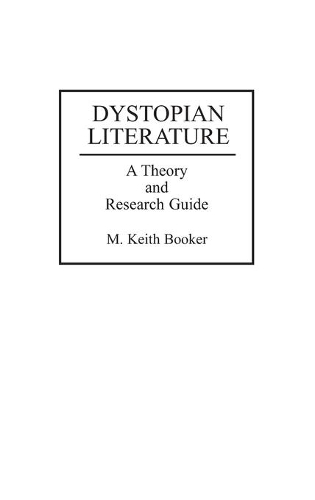
Dystopian Literature: A Theory and Research Guide
(Hardback)
Publishing Details
Dystopian Literature: A Theory and Research Guide
By (Author) Prof. M. Keith Booker
Bloomsbury Publishing PLC
Greenwood Press
25th May 1994
United States
Classifications
Tertiary Education
Non Fiction
Literary studies: fiction, novelists and prose writers
Films, cinema
Reference works
809.39372
Physical Properties
Hardback
424
Width 156mm, Height 235mm
765g
Description
Dystopian literature is a potent vehicle for criticizing existing social conditions and political systems. While utopian literature portrays ideal worlds, dystopian literature depicts the flaws and failures of imaginative societies. Often these societies are related to utopias, and the dystopian writers have chosen to reveal shortcomings of those social systems previously considered ideal. This reference overviews dystopian theory and summarizes and analyzes numerous dystopian works. By reviewing the critical thought of particular dystopian theorists, the beginning of the volume provides a theoretical context for the remainder of the book. Because dystopian literature is so closely related to utopian writing, the reference profiles and discusses eight important utopian works. The rest of the book includes entries for numerous dystopian novels, plays, and films. Each entry summarizes the work and discusses dystopian themes. The entries include short bibliographies, with full bibliographic information provided at the end of the volume. This comprehensive guide covers the full period from Thomas More's Utopia to the present day.
Reviews
The book could well serve as a model postmodernist criticism as applied to a genre of popular culture: graduate students will find much of interest. Recommended for libraries in the area of literary theory or science fiction. Graduate students; faculty.-Choice
"The book could well serve as a model postmodernist criticism as applied to a genre of popular culture: graduate students will find much of interest. Recommended for libraries in the area of literary theory or science fiction. Graduate students; faculty."-Choice
Author Bio
M. KEITH BOOKER is Associate Professor of English at the University of Arkansas. He has written several books on contemporary literature, including The Dystopian Impulse in Modern Literature: Fiction as Social Criticism (Greenwood Press, 1994).
